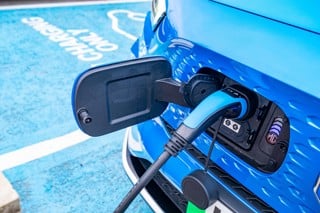The Department for Transport (DfT) has published a leaflet tackling what it sees as the most common misconceptions about electric vehicles (EVs).
While EV technology, vehicles and infrastructure have developed rapidly in recent years, it says that people still understandably have a lot of questions about this new technology.
The leaflet addresses 19 common misconceptions surrounding EVs and charging infrastructure.
For example, in response to the accusation that EVs do not have the battery range to travel as far as people need.
In reality, it says that 99% of car journeys in England are under 100 miles, which means most drivers’ needs are easily met by an EV.
For those travelling further, there are over 20 models available with a quoted 200-plus mile range.
There are also some new electric cars coming through with a range of more than 300 miles, enough to get from Exeter to Leeds.
With battery prices having fallen to 80% of what they were in 2010, continued price decreases in 2021 and further drops forecasted in the long term, the DfT says it expects to see more EVs available with greater range.
Another common misconception, it says, is that building an EV generates more greenhouse gas emissions than it saves.
This has been debunked in numerous well-respected studies, says DfT.
A new battery-electric car has just a third of the lifetime greenhouse gas emissions of an equivalent new petrol car, even when taking into account battery production and disposal.
EVs are getting progressively cleaner as electricity generation decarbonises, it says.
In addition, in response to claims that the battery will need replacing after five years, DfT says that there are well over 10 million EVs on the world’s roads already and there is no evidence to suggest their lifespans are any different from a petrol or diesel vehicle.
Most EV batteries have warranties of around eight years (or 100,000 miles) but are expected to last much longer, and their lifespan continues to improve.
EVs are in daily use across the UK’s roads as taxis and in other high mileage roles.
The Government has also committed £330 million to the Faraday Battery Challenge to support the research, development and scale-up of world-leading battery technology right here in the UK, including pioneering work on improving battery lifespan.
> Interested in comparing electric vehicle data? Check out our EV tool.
> Interested in ensuring the efficient use of EVs. Check out our dedicated editorial sections: Insight & policy | EV news | Charging & infrastructure | Costs & incentives | Benefit-in-kind | EV case studies | EV road tests






















Login to comment
Comments
No comments have been made yet.